Animal cruelty on such a massive scale needs to be punished, but groups say policy reform to move forward with 21st Century non-animal testing is the essential long-term fix.
Washington D.C. — Today, Animal Wellness Action and Center for a Humane Economy applauded the largest ever fine in an Animal Welfare Act case.
The fine was leveled against Envigo RMS LLC, which pleaded guilty to conspiring to knowingly violate the Animal Welfare Act, and Envigo Global Services Inc., which pleaded guilty to a felony of conspiring to knowingly violate the Clean Water Act.

These pleas stem from the surrender of more than 4,000 beagles in 2022 from Envigo’s dog breeding facility, which was secured by the Justice Department.
Inotiv — the parent company of Envigo RMS and Envigo Global Services — will guarantee more than $35 million in payments and be subject to increased animal care standards and a compliance monitor.
Inotiv also supplies primates to pharmaceutical research companies and contract testing labs doing drug-development work. The company received a subpoena in 2023 from the Justice Department regarding receipt of endangered primates.
“We are grateful to the Justice Department for its work in securing the release and adoption of these dogs to loving homes and pursuing criminal charges against the perpetrators of such horrific abuse,” said Wayne Pacelle, president of Animal Wellness Action and the Center for a Humane Economy.
“With Congress enacting the FDA Modernization Act 2.0 at the close of 2022, we are poised to turn the page on the era of unyielding, archaic, and inhumane animal testing, along with the breeding and collecting of animals that precede invasive procedures. Rather than continuing down the same road of cruel and costly use of animals that leads to a 90-95% failure rate in drug development, it’s time to turn to 21st Century science and wind down the work of facilities breeding dogs and primates for lab use,” Pacelle said.
“Failure to shift the drug development paradigm toward modern, human-relevant test methods not only causes precious delays in drug delivery to market but also squanders animal lives, money, efforts, and talent,” said Tamara Drake, director of research and regulatory policy for the Center for a Humane Economy. “It dashes the hopes of millions of people needing effective, timely treatments and life-saving cures.”.
In early February, lawmakers from both parties demanded change in U.S.-led testing of new pharmaceuticals. Led by U.S. Representatives Buddy Carter, R-Ga., Nanette Barragán, D-Cal., Diana Harshbarger, R-Tenn., Rosa DeLauro, D-Conn., and Vern Buchanan, R-Fla., they introduced the FDA Modernization Act 3.0 in the U.S. House. When enacted, that bill, H.R. 7248, will direct the FDA to create a credible qualification program of non-animal testing methods, establishing a vehicle for using these methods in the regulatory process for gaining approval for experimental drugs. FDAMA 3.0 will also require FDA to align its regulations with the new statute under the FDA Modernization Act 2.0, which eliminated a Depression-era mandate that all new drugs and vaccines be tested on animals before human clinical trials.



